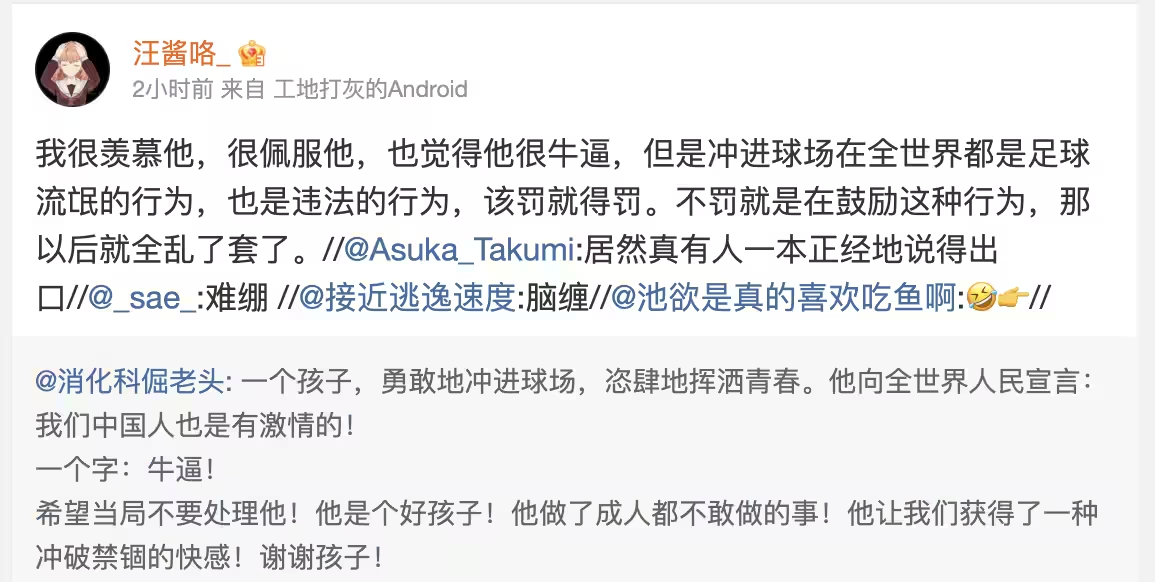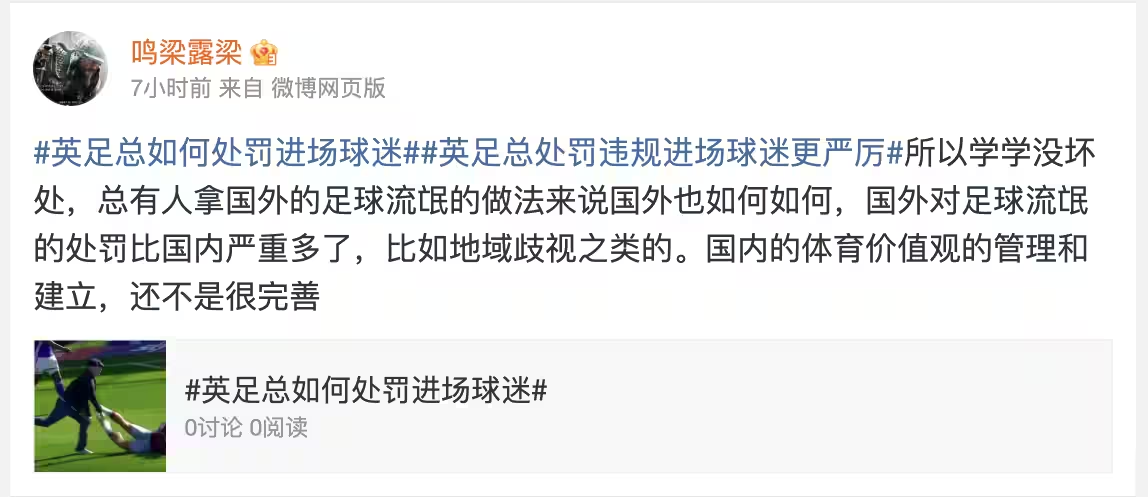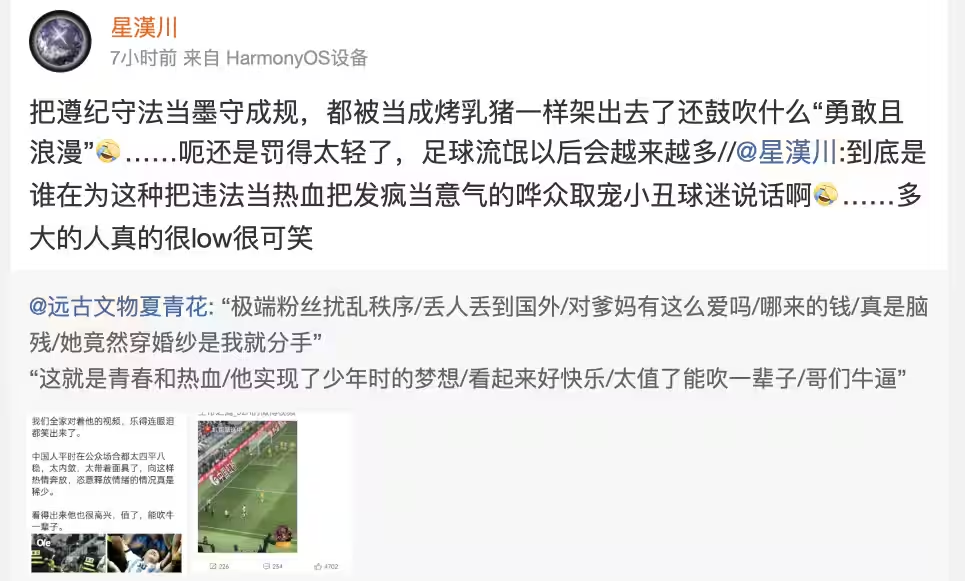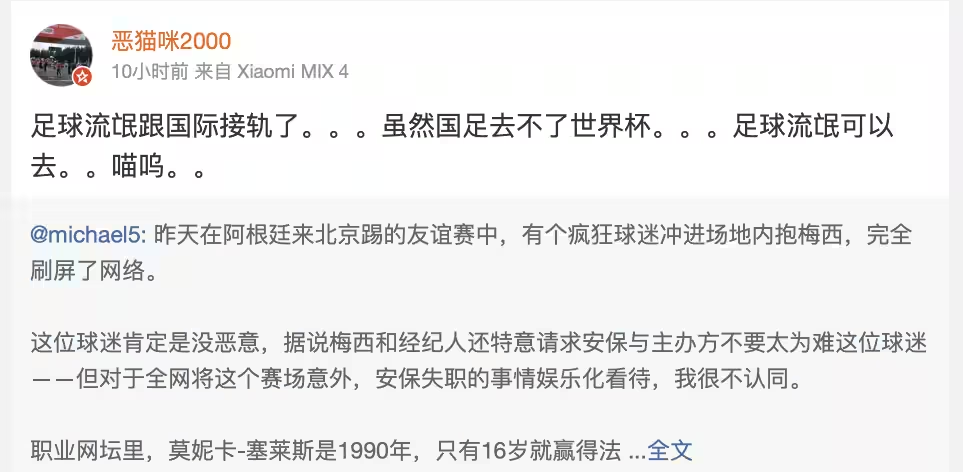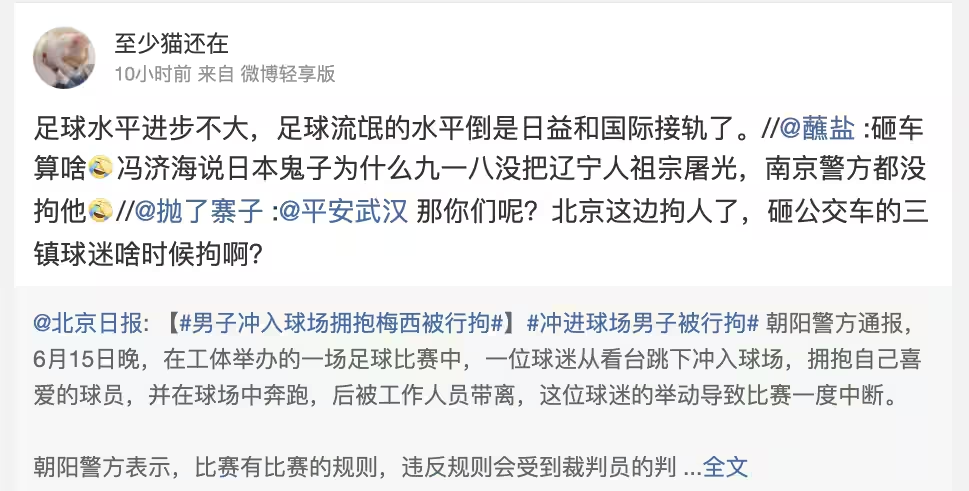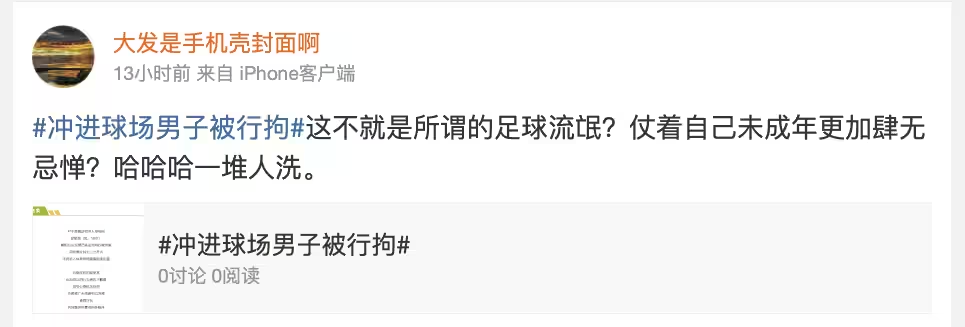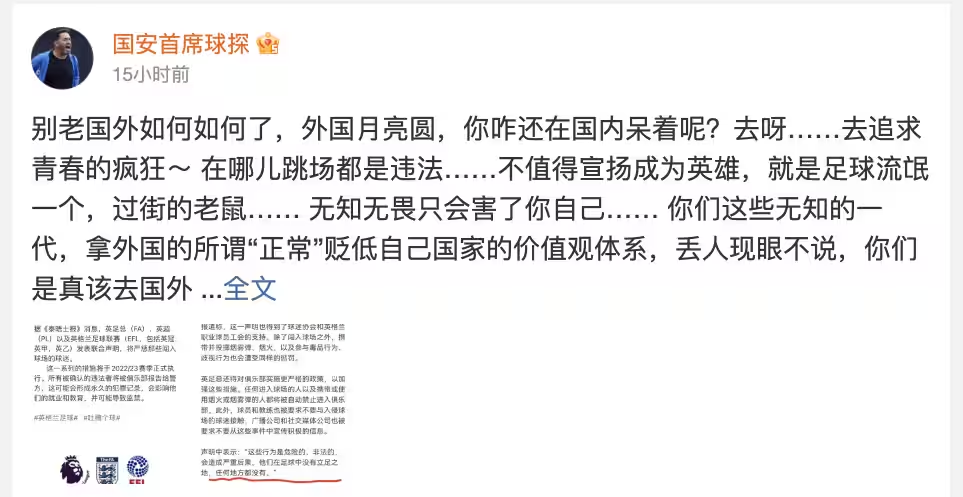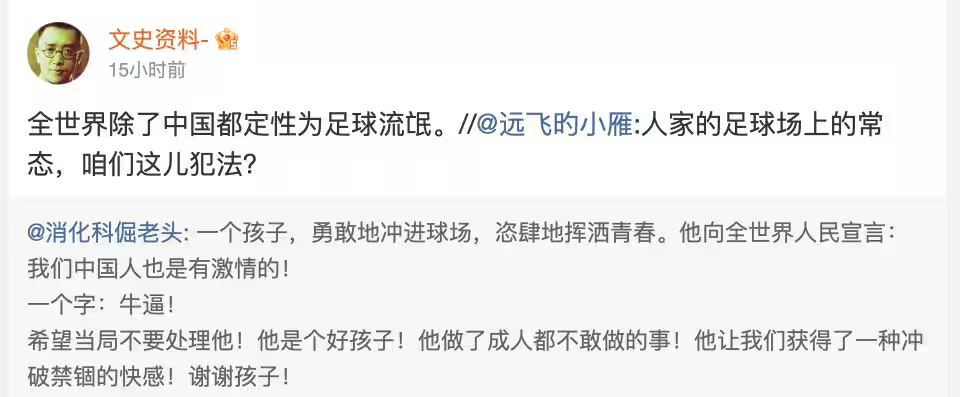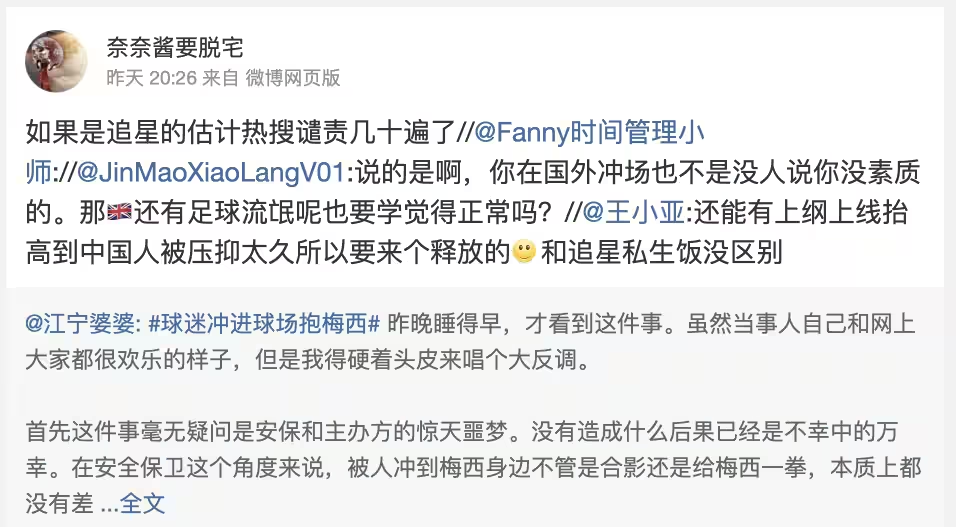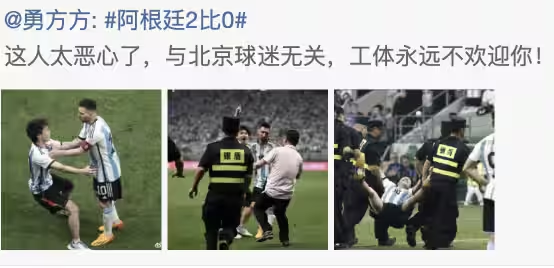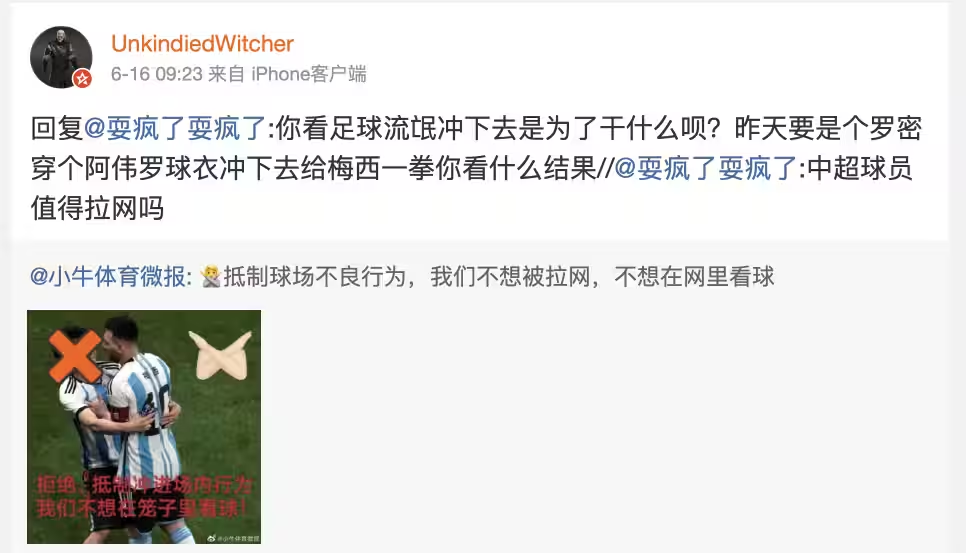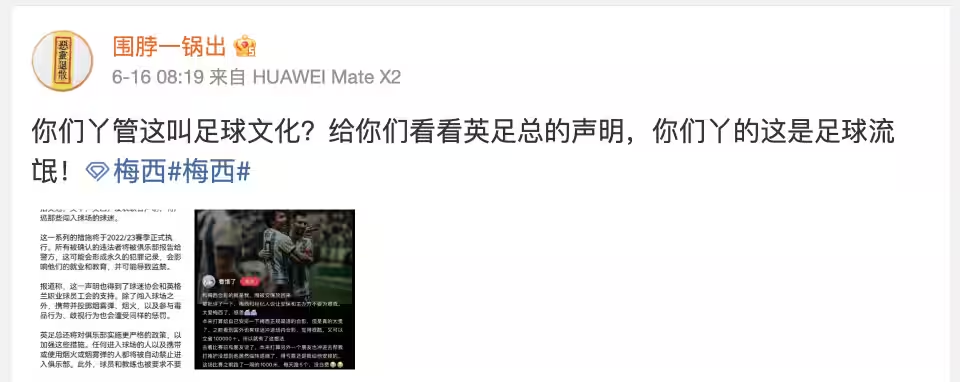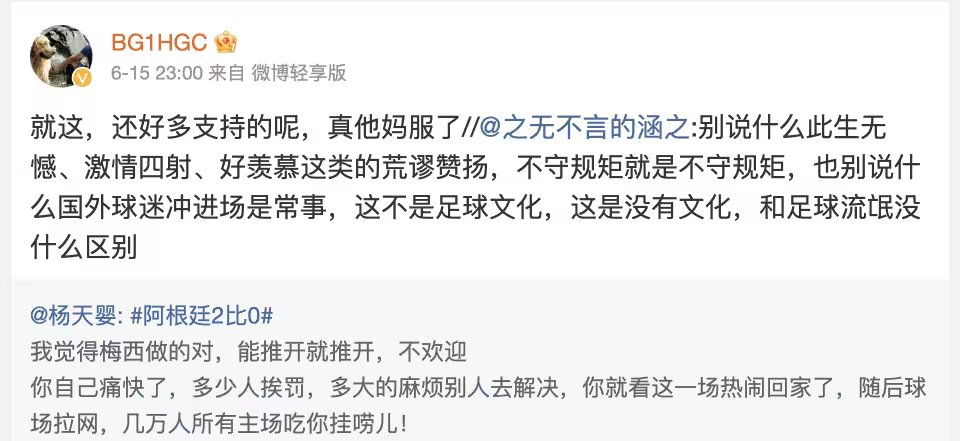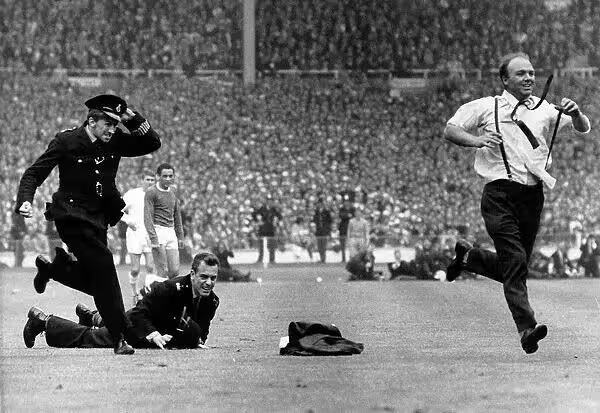
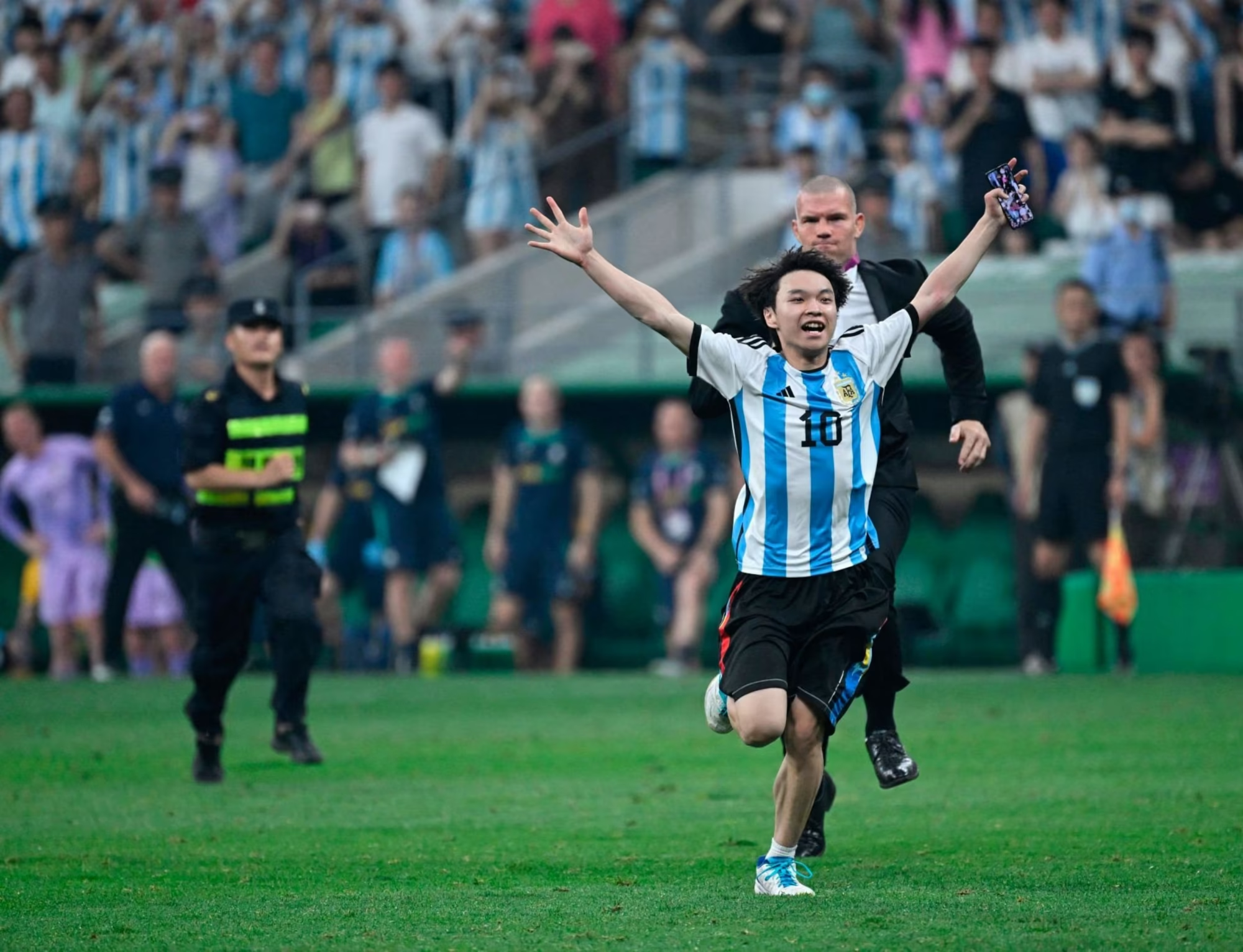
乔治·奥威尔,THE SPORTING SPIRIT,1945年12月14日,《新概念英语》第四册第7课节选
I am always amazed when I hear people saying that sport creates goodwill between the nations, and that if only the common peoples of the world could meet one another at football or cricket, they would have no inclination to meet on the battlefield. Even if one didn’t know from concrete examples (the 1936 Olympic Games, for instance) that international sporting contests lead to orgies of hatred, one could deduce it from general principles.
Nearly all the sports practised nowadays are competitive. You play to win, and the game has little meaning unless you do your utmost to win. On the village green, where you pick up sides and no feeling of local patriotism is involved, it is possible to play simply for the fun and exercise: but as soon as the question of prestige arises, as soon as you feel that you and some larger unit will be disgraced if you lose, the most savage combative instincts are aroused. Anyone who has played even in a school football match knows this. At the international level sport is frankly mimic warfare. But the significant thing is not the behaviour of the players but the attitude of the spectators: and, behind the spectators, of the nations who work themselves into furies over these absurd contests, and seriously believe – at any rate for short periods – that running, jumping and kicking a ball are tests of national virtue.
玛格丽特·撒切尔,1985年,关于欧洲冠军杯决赛的讲话
……the whole House will share the nation’s profound sympathy for the bereaved and injured, and the sense of outrage and shame at the behaviour of some of our citizens which led to the tragedy.
……
The Belgian authorities and UEFA are conducting formal inquiries into the arrangements for the match and into the disaster. They will no doubt report on the extent to which the internationally agreed guidelines and precautions for spectator safety were followed. We cannot prejudge the outcome of those inquiries, but we must recognise that there has been a terrible record of violence at European football matches in which, I regret to say, English supporters have played a large part over many years.
In those circumstances, the Government welcomed the initial decision of the Football Association to withdraw English clubs from participation in European competitions next season, and we fully understand the subsequent decision of UEFA to ban English clubs from European competition for an indefinite period, and we believe it to be right. This withdrawal gives English football authorities the opportunity to introduce effective measures to combat violence and to convince other countries that they have done so.
……
Second, we shall proceed next Session with the legislation envisaged in the Government’s White Paper on the review of public order. The proposals on assemblies in the open air will considerably strengthen the powers available to the police to guard: against the risk of disorder. Wherever they have reason to expect disorder at a football match, the police will, in effect, be able to limit the gate and impose other conditions. Under this provision, the police should be able to stipulate whatever steps they judge necessary to minimise the risk of disorder.
……
I hope that last Wednesday’s sickening events will unite all decent people in helping to eradicate hooliganism. To curb violence requires effort and commitment from us all. If English clubs are to play football in Europe again, they can do so only when their good name, and that of their followers and supporters, has been restored.

